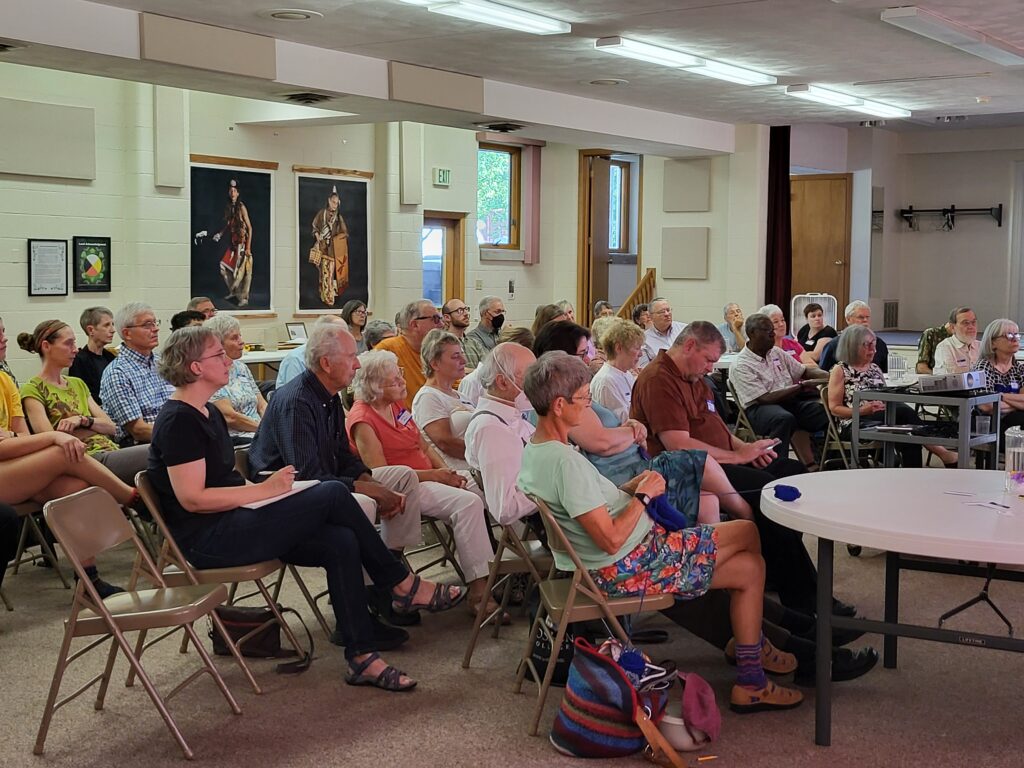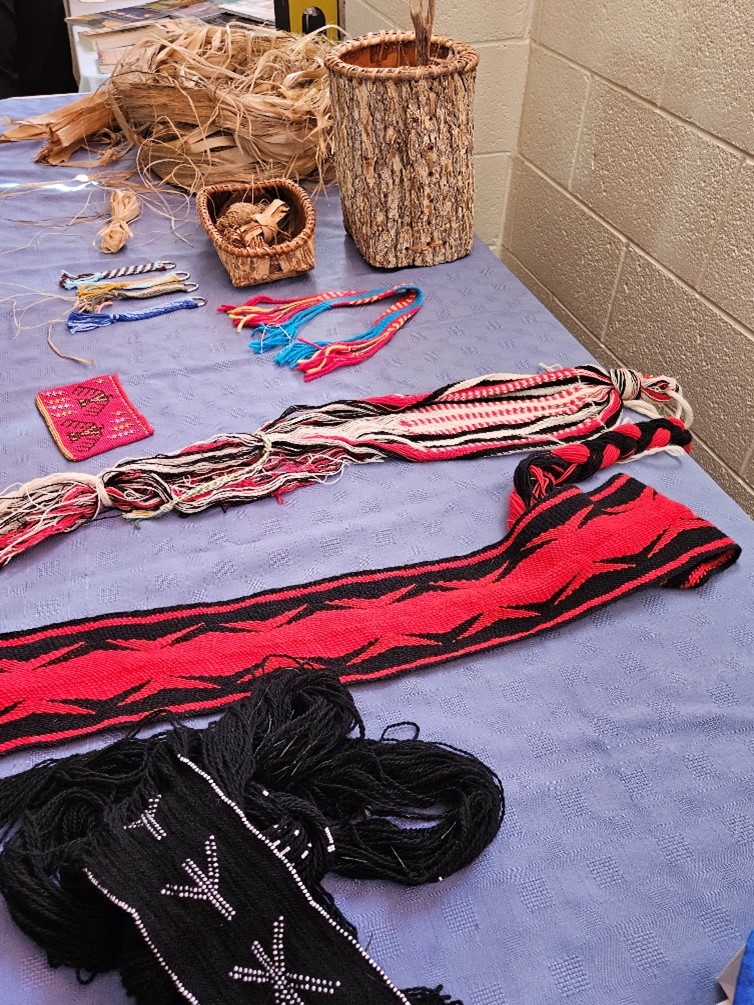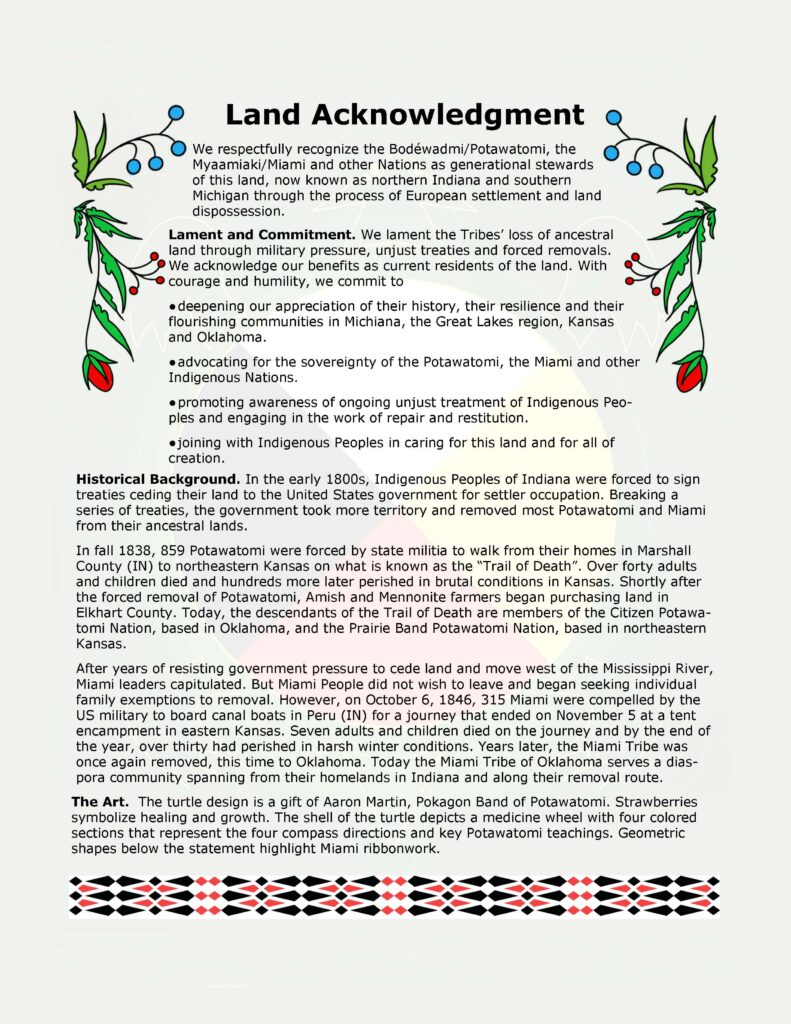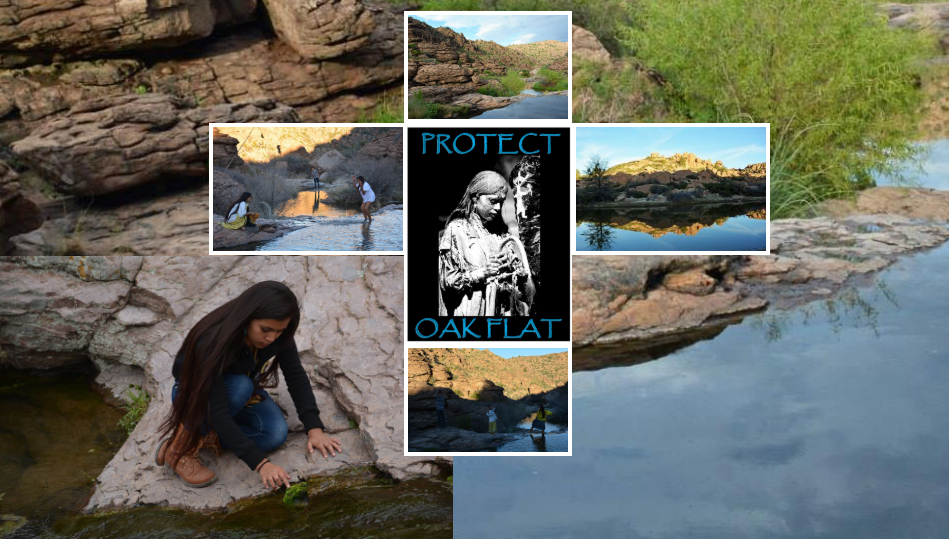
Land Acknowledgment Activities 2024
In September 2024, five portraits of Potawatomi dancers by Sharon Hoogstraten were mounted around the church as striking reminders of the contemporary vitality of Indigenous People. For this year’s fall focus, the Land Acknowledgment Team provided two opportunities to connect with Indigenous Peoples of our region.
Guided by our land acknowledgment commitment to join with Indigenous Peoples in caring for the land, we welcomed the opportunity to learn about a project of the Pokagon Band of Potawatomi to restore a portion of the Dowagiac River of southwest Michigan to its original meandering riverbed. In the early twentieth century, settlers had straightened the river to increase tillable land on its banks. With the completion of this project, damage to the river’s ecosystem is being reversed on a former .6 mile straight section that is now 1.2 miles of winding curves.
On June 27, Jennifer Kanine, Director of Kowabdanawa odë kė (Pokagon Band’s department of natural resources), guided an Eighth Street advance team in exploring the river remeandering and two additional restoration sites in Dowagiac. This group presented their findings to the Connections Class on September 8.
In the afternoon, an intergenerational group traveled by church bus to the Dowagiac River site. Jennifer guided us down a dirt road and through tall grass to the winding curves of the restored riverbank. Rootballs of felled trees stabilize the shoreline and provide habitat for water plants and animals. New trees and other native plants are well established in between the meanders. The phases of the project are illustrated here in overhead photographs.
On September 15, we welcomed Jared Nally, Deputy Tribal Historic Preservation Officer of the Miami Tribe of Oklahoma. Jared works out of the Cultural Resources Extension Office (CREO) in Fort Wayne which provides programming to tribal citizens within the original homelands, primarily in Indiana. Jared contributes to his community and to the revitalization of Miami culture through the craft of weaving.
In the Connections Class, Jared described the origins and history of the tribe including details of the loss of land through unjust treaties, forced removal to Kansas and later migration to Oklahoma. About twenty people from other congregations joined us for an afternoon session in which Jared summarized Miami history and spoke in more detail on contemporary tribal governance and cultural recovery. He described basket construction and traditional weaving techniques.
In 2024, the Team revised the 2021 Land Acknowledgment statement to add the The Miami Tribe of Oklahoma and to emphasize our commitment to repair and restitution as well as advocacy for Indigenous sovereignty. The revised statement was approved by the Church Board in November. A representative sample of Miami ribbon art forms the lower border.
Also in 2024, members of the Land Acknowledgment Team participated in developing a proposal to establish a percentage of the church budget for reparations payments to African American and Native American communities to address historic harms. After a careful discernment process, the congregation adopted the proposal.
The 2025 church budget includes a 1.5% addition for reparations with the goal of increasing .5% in each of the next three years. The Mission and Service Commission and the Land Acknowledgment Team will identify organizations to receive the payments.
Eighth Street has continued to advocate for Apache Stronghold as they have fought to protect their sacred land in Oak Flat, Arizona from destruction by a transnational mining company. Eighth Street joined dozens of faith-based groups in signing an amicus brief as the case has gone to the Supreme Court. The Court is expected to decide in January 2025 whether to take up the case.
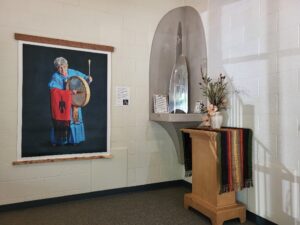
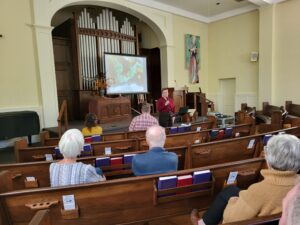
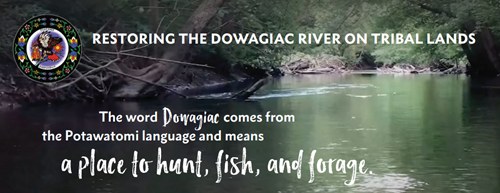
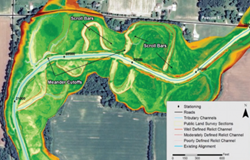
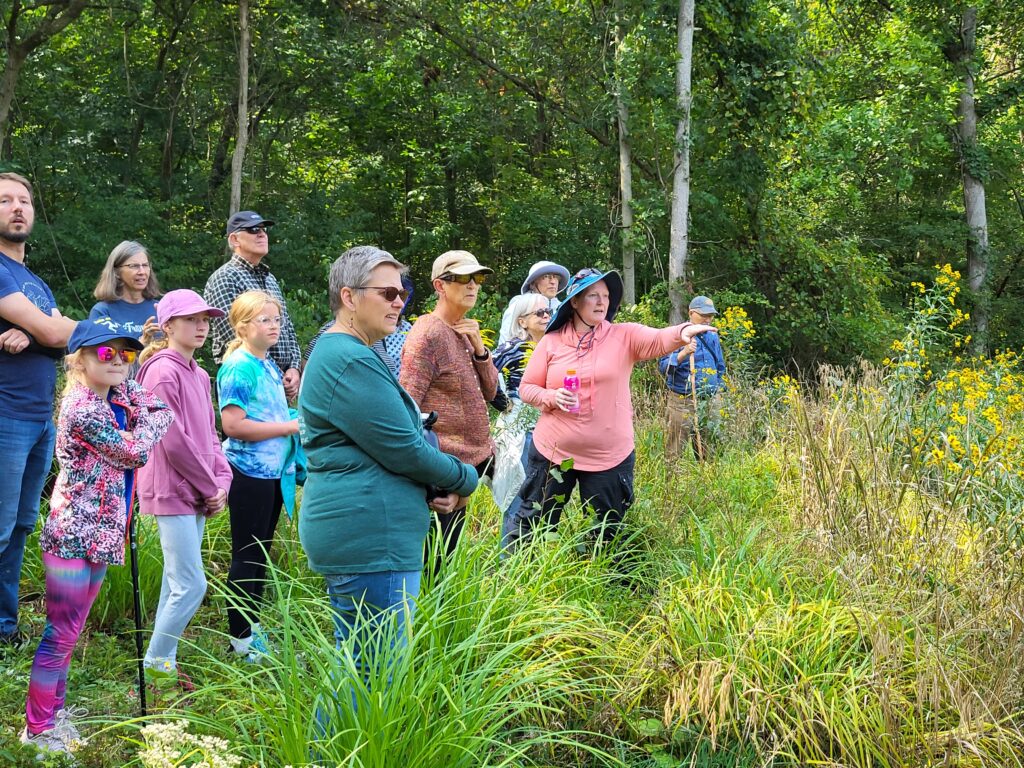
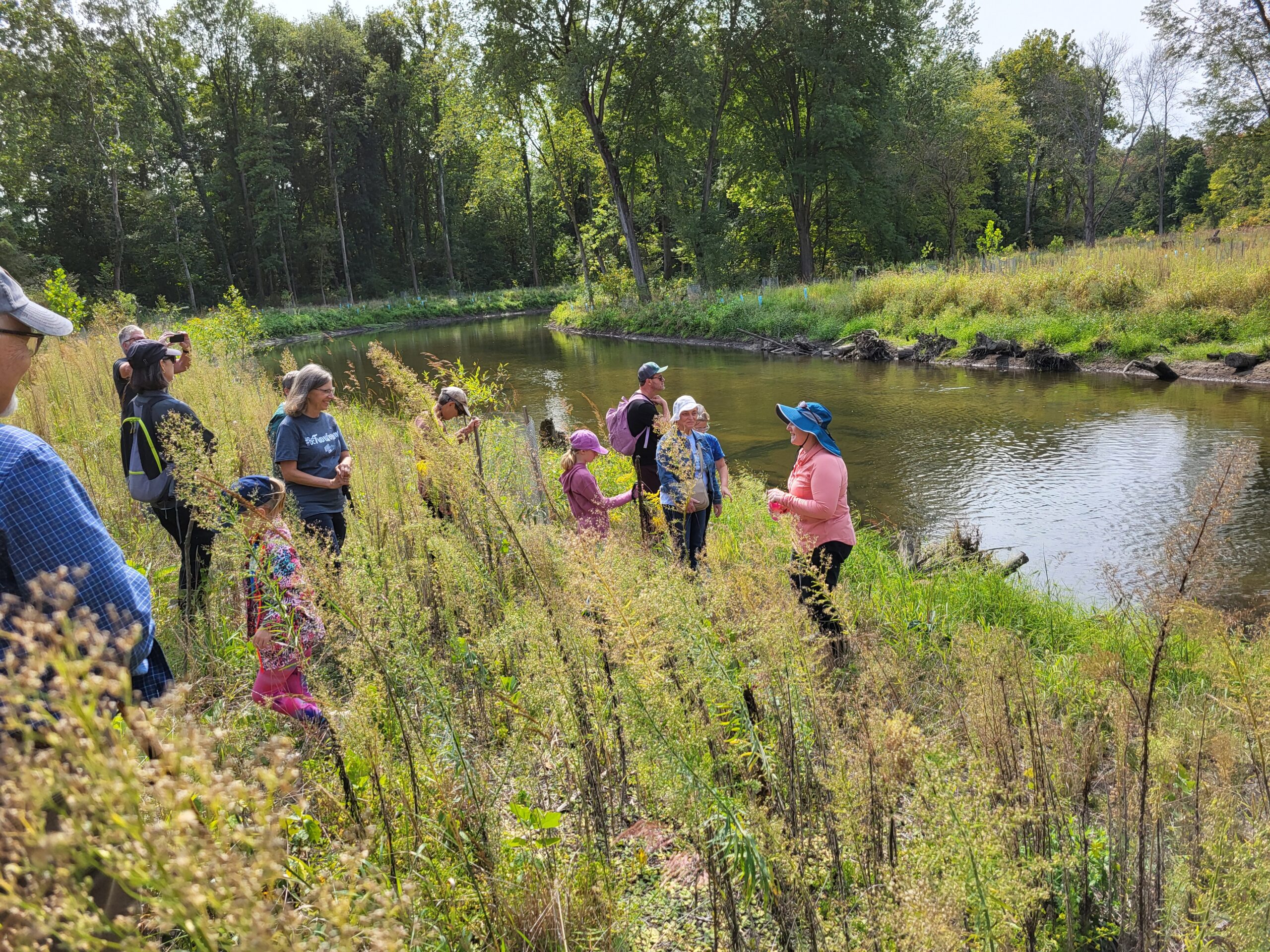
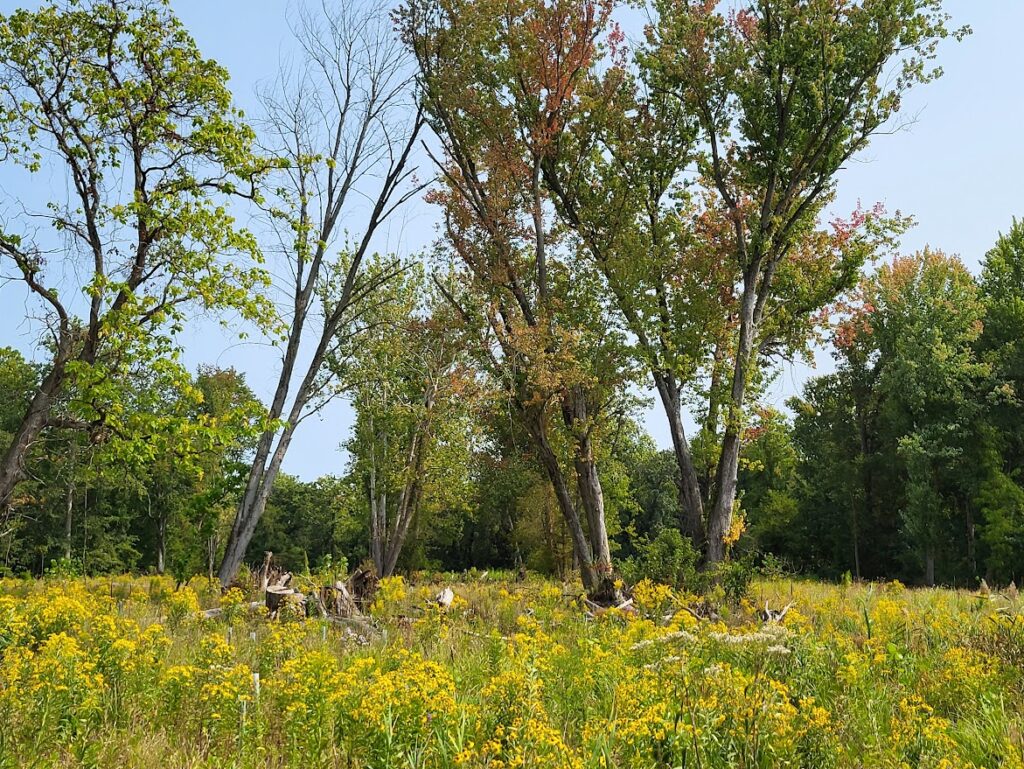
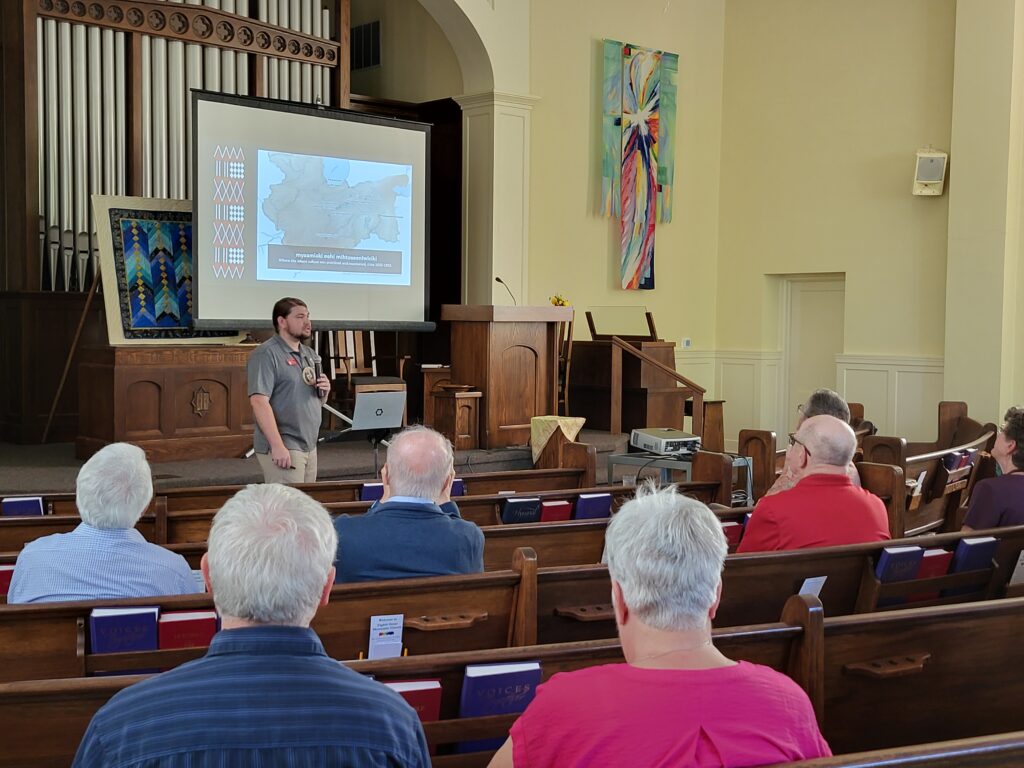
Connections Class
